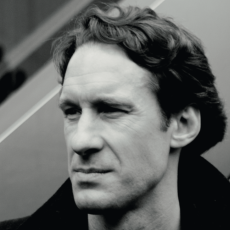The Prince Consort - Other Love Songs - Gloucestershire Echo (Live Review)
Astounding with a powerful performance soprano Katherine Broderick, mezzo Jennifer Johnston, tenor Andrew Staples and baritone Jacques Imbrailo poured their individual talents and stage presence into a collective alongside the piano duet accompaniment of Philip Fowke and Alasdair Hogarth, who supported confidently and with professional panache.
Every nuance of romanticism was coaxed from Brahms' Liebeslieder Walzer opus 52 in ensemble and solos. Sensitive and rapturous the songs were light yet expressive. The vocal blending was strong and the tone colour excellent.
Other Love Songs, a cycle of eight by Stephen Hough, transfixed the audience. In imaginative and thought-provoking treatment the composer introduced other types of love using a variety of musical styles which allowed the musicians to create a wonderful spectrum of characterisation. Opening with the tenor humming a tune based on the last song of Brahms' opus 52 the styles ranged from Madam And Her Madam amusingly reminiscent of Lord Berners to the Kashmiri Song using the piano strings to create a harp-like effect with eastern flavour. The Colour Of His Hair used violent dissonant chords on the piano, continuing transposition of keys and repeated riffs contrasting with a final reverent Agnus Dei. This was a memorable and intriguing song cycle.
Pre-dating the Brahms sets of Liebeslieder, Schumann's Spanische Liebeslieder were not all in triple time. Opening with a solo piano duet allowed the pianists to skilfully highlight a pulsing bolero rhythm hinting at a Spanish origin. In the ensuing mix of solos, duets and ensemble, facial and vocal expressions vividly conveyed the moods of this impassioned composer's music.
Focusing on the darker elements of love which infiltrate Brahms' Neue Liebeslieder opus 65, the singers created drama and atmosphere. Menace dominated Wahre,Wahre Deinen Sohn, anger in Alles, Alles In Den Wind and fatalism in Schwarzer Wald. A change of musical metre is an unusual twist in the final quartet Zum Schluss. The emphasis shifts from lovers to the Muses and cleverly sums up the whole subject of love with Goethe's views set to music.




